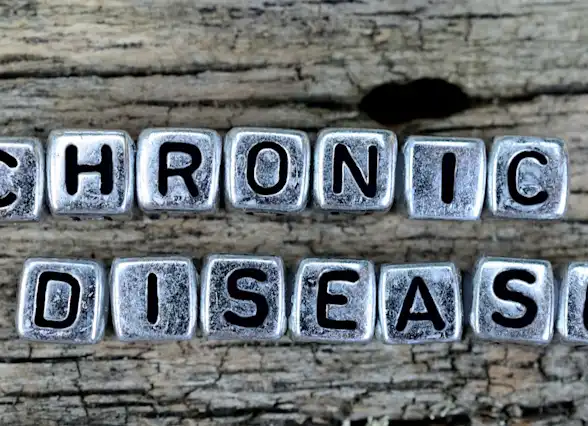Chronic Disease, a Public Health Issue for Older Adults
Heart disease, cancer, stroke, diabetes, and respiratory diseases are prevalent among older adults and are leading causes of illness, disability, and death.
Get insurance benefits, legal documents, and medical records in one place

Helpful Highlights
Chronic diseases represent a significant public health issue for older adults due to several reasons.
Given these factors, addressing chronic diseases among older adults is a top public health priority.
Prevention efforts, early detection, disease management, and promotion of healthy behaviors are essential strategies for reducing burden and improving overall health outcomes.
Prevalence
Chronic diseases such as heart disease, cancer, diabetes, and respiratory diseases are highly prevalent among older adults. As people age, they are more likely to develop one or more chronic conditions, and many older adults live with multiple chronic diseases simultaneously.
Impact on quality of life
Chronic diseases can significantly impact your loved one's quality of life by causing symptoms such as pain, fatigue, mobility limitations, and cognitive impairment. These conditions can also lead to disability, decreased independence, and reduced ability to engage in activities of daily living.
Increased healthcare costs
Managing chronic diseases among older adults accounts for a substantial portion of healthcare spending in the United States. The costs associated with hospitalizations, medications, physician visits, and other healthcare services for chronic conditions can be considerable, both for your loved one (and you) and the healthcare system.
Functional decline and disability
Chronic diseases can contribute to functional decline and disability in your loved one, affecting their ability to perform essential tasks such as bathing, dressing, and cooking. Functional limitations can lead to a loss of independence, increased reliance on you, and reduced overall quality of life.
Mortality
Chronic diseases are the leading cause of death among older adults in the United States. Conditions such as heart disease, cancer, and stroke account for a significant proportion of deaths in this population.
Preventable risk factors
Many of the risk factors for chronic diseases, such as unhealthy diet, physical inactivity, tobacco use, and excessive alcohol consumption, are modifiable (can be changed) through public and private health interventions. Addressing these risk factors can help prevent or delay the onset of chronic diseases and improve the health outcomes of your loved one.
No content in this app, regardless of date, should ever be used as a substitute for direct medical advice from your doctor or other qualified clinician.
Get more support and guidance on insurance benefits, medical records and legal forms.
Helpful brings together your insurance benefits, legal documents, and medical records in one personalized place — so you always know what you have, and never have to search again.

Technology for Health Tasks. Mental Health for the Tough Stuff.
Helpful connects your medical records, insurance, and caregiving tasks automatically. And when you need more than logistics, a therapist is here to guide you.
In-Network and Covered
For Individuals, Couples and Families
HIPAA Compliant, Data Stays Private


Healthcare Tasks Simplified

From syncing records to spotting drug interactions, Helpful does the heavy lifting, turning complex health info into clear tasks and showing you benefits you can actually use, giving you clarity and control over your care.

In-Network Mental Health

Our licensed therapists are here to support you and your loved ones through stress, burnout, and life’s hardest moments, with an inclusive, compassionate approach that works with most insurance plans.

Create Legal Documents

Plan ahead by creating will, trusts, advance directives and more, that ensure your wishes are honored in the event you can’t speak for yourself -with Helpful guiding you every step of the way.